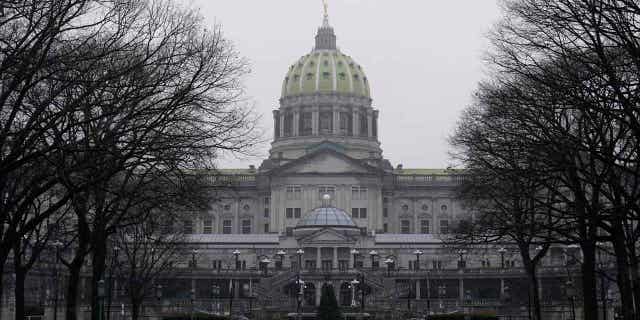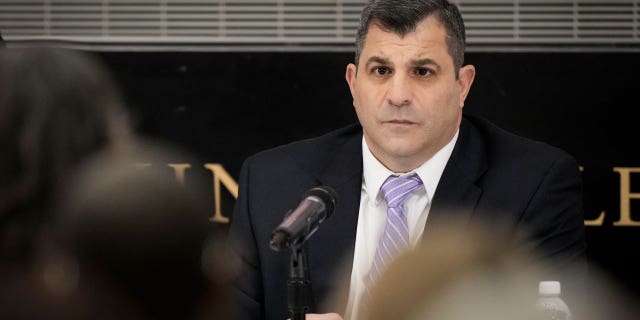

Republicans went into the November general election with a 113-89 seat majority, but lost 12 of them to Democrats.

The Pennsylvania state Capitol is seen on Dec. 14, 2020, in Harrisburg, Pa. (AP Photo/Matt Slocum, File)
One Democratic member passed away from cancer ahead of the election in October, and two subsequently resigned after winning higher office, leaving three vacant seats and a slim 101-99 margin for Republicans.
Prior to Tuesday's special elections to fill those three vacant seats, Republicans sought to strike a deal to avoid losing their majority by supporting state Rep. Mark Rozzi, a Democrat-turned independent, to be House Speaker.
VIRGINIA GOP STAR VOWS TO END DEMOCRAT ‘ROADBLOCK’ OF GOV. GLENN YOUNGKIN'S AGENDA
Part of the deal was for Rozzi to drop his Democratic Party registration and become a registered independent, which would have left the chamber in a tie. He didn't, however, drop his Democratic registration and ultimately recessed the House indefinitely after a consensus couldn't be reached on a piece of legislation.

Pennsylvania House Speaker Mark Rozzi says he has no intentions to step aside for conventional Democratic leadership in his chamber. (AP Photo/Matt Rourke)
With a clear majority, Democrats are expected to put up another candidate for speaker and oust Rozzi, but it is unclear which candidate might have the votes to win the job.
The Associated Press contributed to this report.
